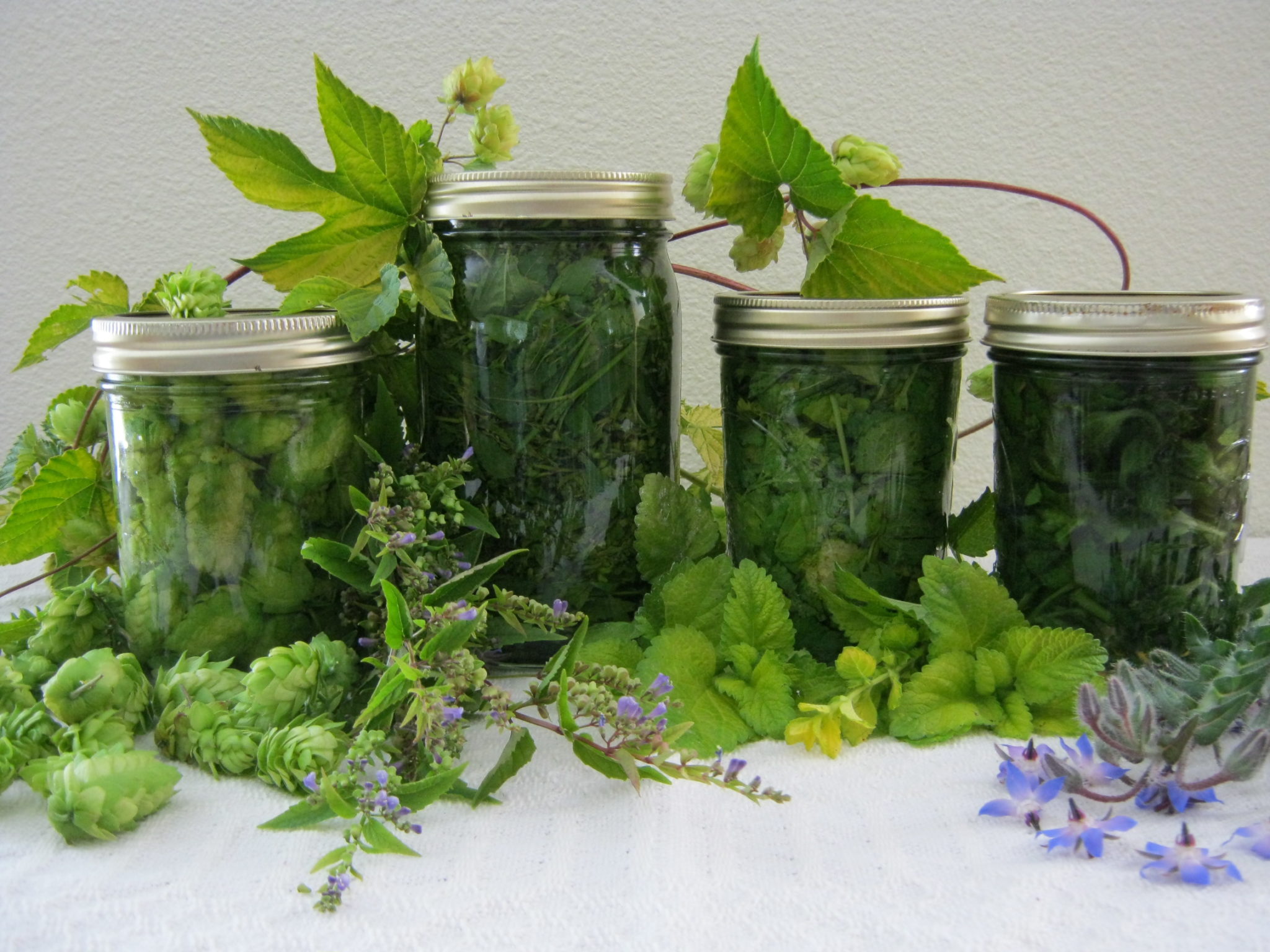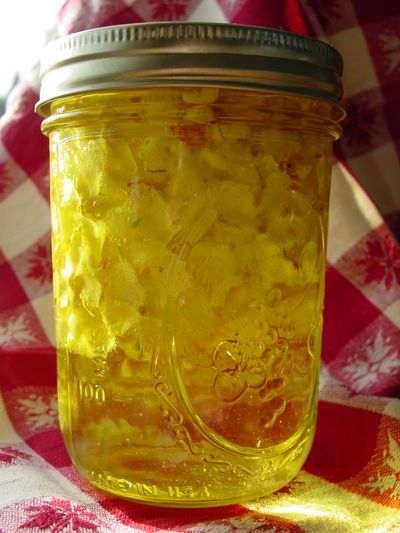
Herbal tinctures, also called extracts, are made from plant material macerated in alcohol, a process which extracts the active compounds from the botanical.
Tinctures are an excellent form of herbal supplements for anybody who can consume alcohol, because they are easily administered, and immediately absorbed into the system.
Due to the high alcohol content tinctures are not suitable for animals or small children.
Tinctures are easy and inexpensive to make:
cover plant material in 40% clear alcohol in a closed mason jar, let steep in cool, dark place for at least 2 weeks, or longer, shake occasionally, and strain when done.
- to tincture dry plant material : use 1 part cut botanical to 3 parts of alcohol. The dried botanical will expand when exposed to the liquid.
- if tincturing dry roots : rinse with water first, to remove soil, and to pre-wet the material for better absorption, before adding alcohol.
- to tincture fresh plant material: loosely fill the jar with the fresh herb, and add enough alcohol, to cover it.
- If you don't have enough fresh plant material to fill the jar at once, e.g when tincturing St. John's Wort or Mullein flowers, you can add to it daily, making sure all plant material stays covered by the alcohol.
Choose a good quality alcohol as your macerating medium.
Clear alcohol is preferred, because alcohol with color may contain additives.
Quality Vodka, grain alcohol, and fruit brandies are good choices.
Powders are not suitable for making tinctures as they are too fine to strain out.
Cut, or whole plant material is preferred, and will collect fine residue at the bottom of the jar nonetheless.
To strain the botanical parts from the alcohol, place a sieve over a wide funnel into another jar, and press out the liquid.
A potato press with sturdy handles may assist in squeezing out liquid from the plant material.
At the final bottling stage decant into individual glass bottles.
A cotton ball placed into the mouth of a funnel can assist in filtering out extra-fine residue.
Decant tincture into bottles, preferably with non-metal caps, and store in a cool, dark place.
*Always research any medicinal plant thoroughly before use, as many plants are poisonous*
*Consult with a licensed health care practitioner when encountering illness*

Leave a Reply